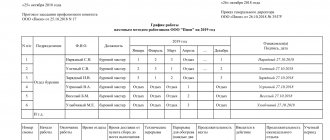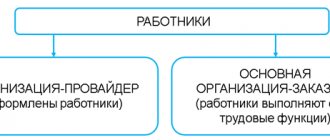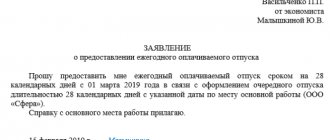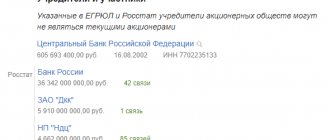What is the essence of the document?
The new Regulatory Directive establishes additional requirements for the procedures for the provision of documents or copies thereof by joint-stock companies in accordance with Art.
91 of the Law on JSC. The document, in particular, establishes: the period for providing access to JSC documents; the content of the request for access to documents sent to the JSC (hereinafter referred to as the Requirement); procedure for signing the Requirements; a list of ways in which a Request can be presented to the JSC; specifics of presenting Requirements in individual cases; the procedure for determining the date of presentation of the Request; procedure for reviewing documents; procedure for fulfilling the requirement to provide copies of documents, etc. In addition, the new Directive takes into account that in cases provided for by law, the shareholder’s request for access to the company’s documents must indicate the business purpose for which the documents are requested.
Providing JSC documents to its shareholders - a new work algorithm from A to Z (part 1)
What should a shareholder do who would like to gain access to a wider range of JSC documents (for example, accounting documents), but does not have enough shares to overcome the 25% bar?
We must unite! The Federal Law “On JSC” directly indicates the possibility of uniting several shareholders in order to obtain joint access to the company’s documents. Moreover, both on a formal and long-term basis (corporate agreement, shareholders agreement), and one-time to achieve a specific goal, for example, access to information about the company.
Unlike the old Directive No. 3388-U, the new Directive No. 5182-U details the procedure for a conglomeration of shareholders to apply for JSC documents. Moreover, clause 13 of Directive No. 5182-U operates not with the term “shareholder”, but with the term “authorized person,” which also indicates to us the possibility of jointly filing a claim. A shareholder, a shareholder's proxy, a trustee and a nominee holder can participate in the process... in any combination!
A joint claim can be made:
- as one document signed by all authorized persons acting jointly. If necessary, the authority of each signatory must be confirmed by attached documents;
- as one document signed by a single authorized person for all merged shareholders. It could be:
- an attorney acting under a power of attorney on behalf of several shareholders;
- a nominee acting on behalf of several persons whose accounts it services.
a trustee who implements the will of several of his counterparties, or
In this case, the requirement must indicate all authorized persons acting jointly. Naturally, in this case, the person signing the demand must confirm his authority to act on behalf of each of the specified shareholders;
If the request is signed by one person, then the requested documents are provided to him - everything is simple here. Can merged shareholders indicate several mailing addresses for sending packages of copies of documents? Unfortunately, there is no clear answer here:
- The pro argument goes like this. Clause 5.1 of Instructions 5182-U provides for the possibility of writing in the request not only one postal address, but also several postal addresses for sending the requested documents. This means that you can indicate the address of not just one representative, but each of the shareholders requesting documents;
- the argument “against” follows from paragraph 18 of Directive 5182-U, which states the need for there to be no differences “in substance” between the demands stated by shareholders. Although the term is not deciphered, it is logical to assume that “essence” refers to the mandatory information set out in the requirement, incl. mailing address. And if several requirements indicate a different address for the provision of copies, then they can formally be considered as independent requirements.
Therefore, in order to avoid disagreements about the compliance or non-compliance of the substance of the requirements of several shareholders, we recommend drawing them up according to a single template:
- the addresses of each of the “cartel” participants must be indicated in each of the requirements “separated by commas” (Example 6) or
- indicate the address of one shareholder (Example 7), who will subsequently send the received copies to the rest of the “cartel” participants.
Why have the requirements been updated?
The need to update additional requirements is due to changes in legislation in this area. In particular, the new Directive by the Bank of Russia takes into account the amendments made to the Law on Joint Stock Companies by Federal Law No. 233-FZ dated July 29, 2017, in terms of regulating the procedure for companies providing information (documents) to shareholders upon their request. The mentioned law changed the list of documents that a joint-stock company provides to shareholders upon their request, stipulated conditions under which a joint-stock company has the right to deny shareholders access to documents and information, and made a number of other changes to the procedure for providing information to shareholders by a joint-stock company.
Transfer from one form of ownership to another, reorganization
Any form of ownership of a commercial enterprise can be transformed into a JSC in the following ways:
- Conversion;
- Merger.
A joint stock company can only be transformed through:
- Separation of a separate enterprise;
- Division into separate organizations.
Depending on the type chosen, the law provides for appropriate procedures for making the transition. Some features are often modified, so the latest information must be found in the latest version of the law at the time such a decision is made.
What information are shareholders entitled to request?
The list of information and documents to which JSCs are obliged to provide access to shareholders upon their request is specified in clause 1 of Art. 91 of the Law on JSC. These include, in particular:
- the charter, amendments and additions made to it;
- a document confirming the state registration of the company;
- internal documents of the company regulating the activities of its bodies approved by the general meeting of shareholders;
- regulations on the branch or representative office;
- annual accounting (financial) statements and auditor's report thereon;
- reports of appraisers in cases of repurchase of shares by the company at the request of the shareholder;
- minutes of general meetings;
- lists of affiliated persons of the company;
- conclusions of the audit commission and others.
FAQ
What is included in the package of constituent documents of a legal entity?
Typically these are the company's charter and memorandum of association. Some structures may require minutes of meetings to be attached to them.
Are the charter the founding document of an organization?
Yes, this is the main constituent document of the company, which spells out all its characteristics. This is reflected in the Civil Code of the Russian Federation 52.
How to draw up a company charter?
If the LLC registration is accompanied by a company, it will draw up all the necessary constituent documents. If registration is carried out independently, standard charter forms can be found on the Internet, downloaded, filled out and submitted to the registration authority.
How to draw up a memorandum of association?
It is drawn up by the founders on the basis of general decisions and agreements. To create one, you can contact a law firm or use online assistants. For example, a service for creating constituent agreements is available on the Otkritie Bank website.
Is it possible to make changes to the constituent documents?
The founders are obliged to update information and promptly transmit information about this to the registration authority.
Sources:
- ConsultantPlus: Civil Code of the Russian Federation Article 52. Constituent documents of legal entities.
- ConsultantPlus: Order of the Ministry of Economic Development of Russia dated August 1, 2018 N 411 “On approval of standard charters.
- Wikipedia: Constituent documents.
about the author
Irina Rusanova - higher education at the International East European University in the direction of "Banking". Graduated with honors from the Russian Economic Institute named after G.V. Plekhanov with a major in Finance and Credit. Ten years of experience in leading Russian banks: Alfa-Bank, Renaissance Credit, Home Credit Bank, Delta Credit, ATB, Svyaznoy (closed). He is an analyst and expert of the Brobank service on banking and financial stability. [email protected]
Is this article useful? Not really
Help us find out how much this article helped you. If something is missing or the information is not accurate, please report it below in the comments or write to us by email
Is there a new way to request documents?
Yes, among the ways to submit a request for access to JSC documents, there will be another one - requesting documents through a nominal shareholder. Such a message should contain:
- the date of its dispatch;
- the number of shares of each category (type) owned by the shareholder;
- the date on which their quantity is indicated.
The date of presentation of the demand will be the day when the registrar of the company receives the electronic document of the nominee holder with the specified message.
Profit distribution
Profit distribution exists only in limited liability companies. JSCs pay dividends, which are calculated from net profit at the end of the reporting year. Shares are distributed in proportion to the number of shares held by the shareholder. The General Meeting of Shareholders makes a decision on the payment of dividends (in exceptional cases, when this is stated in the charter, the board of directors). This decision contains the amount of funds allocated for dividends, as well as the timing of their payment.
It follows that the shareholders meeting may refuse to pay dividends. However, the stable payment of part of the net profit as dividends proves the company's reliability for new investors who want to purchase its shares.
Profits are distributed in proportion to the shares owned by the shareholder
What is the procedure for requesting documents about previous periods of work of a JSC?
When requesting documents that do not relate to the current period or are no longer valid, one of the following certificates should be attached to the request:
- on a personal account opened in the register of shareholders;
- securities account opened at the depository.
You can attach a similar document from a foreign nominee holder or a foreign organization that, according to its personal law, can take into account and transfer rights to securities. The certificate must confirm the number of shares owned by the shareholder for the period to which the requested document relates. The rules will not affect requests for information about transactions that are executed while shares are held.
Procedure for issuing and paying dividends
The issue of securities by the JSC occurs according to the general procedure, which includes 5 steps:
- Making a decision on the issue.
- Approval of the decision. These actions fall within the competence of the general meeting or board of directors.
- State registration of securities in a division of the Central Bank of the Russian Federation with assignment of a registration number.
- Placing (making transactions).
- Report on the results of the issue. Includes data on the timing, methods of placement, volume of issued shares and is sent to the Bank of Russia.
Dividends are a part of the profit of a joint-stock company, transferred to shareholders in proportion to the number of shares purchased. Payment occurs annually or quarterly. The decision on payment is made by shareholders at a general meeting or by decision of the board of directors. The circle of persons entitled to dividends, their size, timing and procedure for transferring funds is subject to determination.
Within what period must copies of documents be handed over to the shareholder?
If the JSC has received a properly completed request (sent in the prescribed manner and containing all the necessary information, with confirmation of the authority of the person applying) and there are no grounds for refusal, it is obliged to provide access to the requested information within 7 working days from the date of presentation of the demand.
If a significant number of copies are requested, the deadline for fulfilling the request may be extended by no more than 20 working days. Extension of the period and reasons must be notified within the original period. Copies must be submitted as they are made.
In addition, the amendments established a rule on how to count 7 working days for the transfer of copies of documents if an advance payment is required for their production and (or) delivery to the company. This period is calculated from the moment of full payment of expenses.
The need for an advance must be provided for in the charter or internal document of the company.
List of constituent documents of a legal entity and individual entrepreneur 2022 and registration period
Do you want to open your own business and don’t know what constituent documents are? Or your counterparty asks for a complete list of constituent documents of an individual entrepreneur or legal entity (LLC, JSC, etc.), but you don’t know what exactly to provide? It is for you that the lawyers of the PravoDeystvie firm (Cheboksary) have prepared this article free of charge to help you and clarify all the nuances of the topic of constituent documents in 2022. By the way, if you need to develop or revise constituent documents and you do not want to make mistakes, then we advise you to trust the professionals and use the service “Development/reworking of constituent documents of a legal entity and other related documents”, they can provide the service remotely throughout Russia.
The content of the article
:
Lists (list) of constituent documents
- List of constituent documents of individual entrepreneurs 2022 and registration period
- List of constituent documents of a legal entity 2022 and registration deadlines - List of constituent documents of an LLC and registration period - List of constituent documents of a joint-stock company and registration period - List of constituent documents of a general partnership and registration period - List of constituent documents of a unitary enterprise and registration period - List of constituent documents of a non-profit organization and registration period
List of constituent documents of individual entrepreneurs 2020
In the process of state registration of an individual as an individual entrepreneur (registration of an individual entrepreneur), a new legal entity is not formed, unlike, for example, registration of a Limited Liability Company (LLC). By registering with the territorial body of the Federal Tax Service of Russia at the place of residence, a citizen simply receives the right to engage in entrepreneurial activity; his individual identification number (TIN) remains the same as that which was assigned to the individual. If a citizen has not previously received a TIN certificate, then upon state registration as an individual entrepreneur such a citizen will be assigned a TIN and issued the relevant documents. Therefore, if you are asked for the constituent documents of an individual entrepreneur, then they are incorrect
use this term and most likely mean evidence that you are legally engaged in commercial activities and are registered with the tax authorities.
So, there is the following list of “individual entrepreneur constituent documents” for 2022 (all these documents can be obtained after registering an individual as an individual entrepreneur):
- Entry sheet of the Unified State Register of Individual Entrepreneurs (form No. P60009 approved by order of the Federal Tax Service of Russia dated September 12, 2016 No. MMV-7-14 / [email protected] ).
- Certificate of registration with the tax authority (TIN - if it has not been issued previously).
We also provide a list of legally significant documents for individual entrepreneurs:
- Identity card (passport).
- Licenses to carry out activities, if required by law (construction, private security, medicine, transportation of passengers, etc.).
- Notifications of registration with the Compulsory Medical Insurance Fund and the Pension Fund.
- Extract from the Unified State Register of Individual Entrepreneurs.
Individual entrepreneur registration period . State registration of an individual as an individual entrepreneur is carried out within no more than three working days from the date of submission of documents to the registration authority (Chapter 7.1, paragraph 3, Article 22.1 of the Federal Law of August 8, 2001 N 129-FZ “On State Registration of Legal Entities and Individual Entrepreneurs” ").
List of constituent documents of a legal entity 2020
Depending on the type of organizational and legal form, the organization will have its own unique list of constituent documents of the legal entity. In this subsection we will consider the 2020 lists: limited liability company, joint stock company, general partnership, unitary enterprise and constituent documents of a non-profit organization (non-profit corporate organizations and non-profit unitary organizations).
List of constituent documents of LLC
According to the legislation of the Russian Federation, the list of constituent documents of an LLC (limited liability company) in 2022 includes only:
- Charter of a limited liability company (Article 52 of the Civil Code of the Russian Federation and Article 12 of the Law “On LLC”)
We also provide a list of the most legally significant documents for an LLC:
- In the case of the establishment of the Company by one person - “Decision of the sole founder on the establishment of an LLC”; two or more persons - “Minutes of the meeting of founders on the establishment of an LLC”, as well as the “Agreement on the establishment of an LLC”.
- Record sheet of the Unified State Register of Legal Entities according to form No. P50007.
- Extract from the Unified State Register of Legal Entities.
- Notifications of registration with the Compulsory Medical Insurance Fund, Pension Fund and Social Insurance Fund.
- Decision (Protocol) on the appointment of a sole executive body (general director, director, etc.).
- Order on assumption of office by the sole executive body.
- Lease agreement or Certificate of ownership of non-residential premises, confirming the location of the Company at the place of registration.
LLC registration deadline . State registration of legal entities, in this case LLC, upon their creation is carried out within no more than three working days from the date of submission of documents (clause 3 of Article 13 of the Federal Law of August 8, 2001 N 129-FZ “On state registration of legal entities and individual entrepreneurs ").
List of constituent documents of the joint-stock company
According to the legislation of the Russian Federation, the list of constituent documents of a JSC (Joint Stock Company) in 2022 includes only:
- Charter of a joint stock company (Article 52 of the Civil Code of the Russian Federation and Article 11 of the Law “On JSC”)
We also provide a list of the most legally significant documents for a JSC:
- Agreement on the establishment of the Company (if the number of founding shareholders is more than 1);
- Decision (protocol) on the establishment of the Company;
- Extract from the Unified State Register of Legal Entities;
- Record sheet of the Unified State Register of Legal Entities according to form No. P50007;
- Decision (Protocol) on the appointment of a sole executive body;
- Decision on the issue (additional issue) of securities, changes to the decision on the issue (additional issue) of securities, report on the results of the issue (additional issue) of securities, notification on the results of the issue (additional issue) of securities;
- Register of shareholders;
- List of affiliated persons of the Company;
- Lease agreement or Certificate of ownership of non-residential premises, confirming the location of the Company at the place of registration.
JSC registration period . State registration of a joint stock company upon its creation is carried out within no more than three working days from the date of submission of documents (clause 3 of Article 13 of the Federal Law of August 8, 2001 N 129-FZ “On State Registration of Legal Entities and Individual Entrepreneurs”).
List of constituent documents of a general partnership
According to the legislation of the Russian Federation, the list of constituent documents of a general partnership in 2022 includes only:
- Founding agreement of a general partnership (Article 52 and Article 70 of the Civil Code of the Russian Federation)
We also provide a list of the most legally significant documents for a general partnership:
- Protocol on the establishment of a legal entity.
- Record sheet of the Unified State Register of Legal Entities according to form No. P50007.
- Extract from the Unified State Register of Legal Entities.
- Notifications about registration with the Pension Fund and the Social Insurance Fund.
Partnership registration deadline . C State registration of a general partnership upon its creation is carried out within no more than three working days from the date of submission of documents (Article 13 of the Federal Law of 08.08.2001 N 129-FZ “On State Registration of Legal Entities and Individual Entrepreneurs”).
List of constituent documents of a unitary enterprise
According to the legislation of the Russian Federation, the list of constituent documents of unitary enterprises in 2022 includes only:
- Charter of a unitary enterprise (Article 52 of the Civil Code of the Russian Federation and Article 9 of the Law “On State and Municipal Unitary Enterprises”) According to Article 113 of the Civil Code of the Russian Federation, state and municipal enterprises currently operate in the organizational and legal form of unitary enterprises. In cases and in the manner provided for by the law on state and municipal unitary enterprises, a unitary state enterprise (state enterprise) may be created on the basis of state or municipal property.
We also provide a list of the most legally significant documents for unitary enterprises:
- Decision of an authorized state (municipal) body on creation (in the form of a protocol, agreement or other document).
- The decision of the authorized state (municipal) body on the appointment of the head of the enterprise (reportable to this body).
- Information on the composition and value of property assigned to a unitary enterprise with the right of economic management or operational management
- Record sheet of the Unified State Register of Legal Entities according to form No. P50007.
- Extract from the Unified State Register of Legal Entities (USRLE).
Deadline for registration of a unitary enterprise . State registration of a unitary enterprise upon its creation is carried out within no more than three working days from the date of submission of documents (Article 13 of the Federal Law of 08.08.2001 N 129-FZ “On state registration of legal entities and individual entrepreneurs”).
List of constituent documents of a non-profit organization (non-profit corporate organizations and non-profit unitary organizations)
According to the legislation of the Russian Federation, the list of constituent documents of non-profit organizations (NPOs) in 2022 includes only:
- Charter of a non-profit organization (Article 52 of the Civil Code of the Russian Federation).
We also provide a list of the most legally significant documents for non-profit organizations:
- The decision on the creation of a non-profit organization and on the approval of its constituent documents indicating the composition of the elected (appointed) bodies;
- Information about the founders;
- Certificate of registration of the NPO;
- If the founder is a foreign person - an extract from the register of foreign legal entities of the relevant country of origin or another document of equal legal force confirming the legal status of the founder - a foreign person
Registration period for NPOs. If there are no reasons for refusing to register an NPO, then the Ministry of Justice or its territorial branch makes the final decision no later than 14 working days from the date of receipt of the package of documents. Then the information and documents are sent to the Federal Tax Service (FTS) for inclusion in the Unified State Register of Legal Entities (USRLE). Based on the data received, within 5 working days, information about the new NPO is entered into the register, and no later than the next working day, the Federal Tax Service informs the Ministry of Justice about this, which in turn, no later than three working days, issues the applicant a certificate of state registration of his non-profit organization (clause 8 of Article 13.1 of the Federal Law of January 12, 1996 N 7-FZ “On Non-Profit Organizations” and paragraph 22 of the administrative regulations for the provision by the Ministry of Justice of the Russian Federation of state services for making decisions on state registration of non-profit organizations).
Types of organizational and legal forms (OLF) of non-profit organizations (NPOs). Currently, non-profit organizations can be created in the following organizational and legal forms:
- consumer cooperatives, which include, among other things, housing, housing construction and garage cooperatives, horticultural, gardening and dacha consumer cooperatives, mutual insurance societies, credit cooperatives, rental funds, agricultural consumer cooperatives;
- public organizations, which include, among other things, political parties and trade unions (trade union organizations) created as legal entities, public initiative bodies, territorial public self-governments;
- social movements;
- associations (unions), which include, among other things, non-profit partnerships, self-regulatory organizations, associations of employers, associations of trade unions, cooperatives and public organizations, chambers of commerce and industry;
- real estate owners' associations, which include, among other things, homeowners' associations;
- Cossack societies included in the state register of Cossack societies in the Russian Federation; communities of indigenous peoples of the Russian Federation;
- foundations, which include public and charitable foundations; institutions, which include government institutions (including state academies of sciences), municipal institutions and private (including public) institutions;
- autonomous non-profit organizations; religious organizations; public law companies; bar associations;
- legal entities (which are legal entities);
- state corporations;
- notary chambers.
That's it now!
Now you know the list of constituent documents for legal entities and individual entrepreneurs in 2022, as well as the registration deadlines established by law. We sincerely hope that this article helped you understand this topic without resorting to the help of paid lawyers! If something is not clear, or you want to create or make changes to the constituent documents in Cheboksary, then use the service legal consultation in Cheboksary or Development/revision of legal constituent documents. faces. Thank you very much for your attention and success in business!
in 1 click
How to provide copies of documents?
The procedure for providing copies of documents is regulated by clauses 24 - 28 of Bank of Russia Directive No. 5182-U dated June 28, 2019. Upon receipt of such a request, by default copies are provided without identification. If the requirement indicates the need to certify them, the copies are affixed with the signature of an authorized person and the seal of the company (if any). If the person authorized to certify copies is a person who does not hold the position (does not perform functions) of the sole executive body of the company, then a document (a copy thereof) confirming the authority of the authorized person to certify copies of the company’s documents is attached to the copies of documents.
Inclusion in the charter of information about the management bodies of the joint-stock company. Sample charter of a joint stock company
What information the charter reflects regarding the management bodies of a joint-stock company depends on the structure of the joint-stock company.
The following may be found in the charter:
- Information about the sole executive body. By virtue of paragraph 1 of Art. 69 Federal Law No. 208, this body manages the activities of the JSC. The term and procedure for electing the body, its powers, rights and obligations are prescribed. A JSC has an interesting feature, which is that the sole executive body can be several persons who act together.
- Information about the collegial body, if one is created. Its composition, the number of participants, their rights and obligations, term of office, and election procedure are prescribed.
- Information about the board of directors, if one is created. Such a body is required to act if the JSC has more than 50 shareholders.
- Information about the audit commission, if one is created.
A sample charter of a public joint-stock company can be downloaded from the link.
This is a fairly detailed sample; it contains all the necessary information about a public joint-stock company that must be provided in the constituent document. This charter is most suitable for joint-stock companies in which the general meeting of shareholders acts as the governing body, and there is also a sole executive body in the form of a general director.
When can you refuse to provide information?
A shareholder may be denied access to documents and information in the following cases:
- the person making the request does not have the right of access to the requested documents in accordance with the established conditions;
- an electronic version of the requested document is available on the company’s website or disclosed in the manner prescribed by the legislation of the Russian Federation on securities;
- the document is requested again within three years and access to it has already been provided;
- the document relates to past periods of the company’s activities (more than three years before the date of filing the claim), with the exception of information about transactions that are being executed at the time of filing;
- the request does not indicate a business purpose (if it should be reflected), or it is not reasonable, or the composition and content of the requested documents clearly do not correspond to such a purpose, etc.
If the company refuses to give the shareholder access to documents, it will need to inform him about this in writing. Notification will need to be made using the method of communication specified in the shareholder’s request. Duration: 7 working days from the date of its presentation.
Memorandum of association and decision of the founders on the creation of a joint stock company
The basis for creating a JSC, according to Art. 9 of Law 208-FZ, the decision of the founders (or the founder, if he acts alone) is made. It is drawn up based on the results of the vote of the founders on issues on the agenda, including the establishment of a new legal entity, approval of its charter and election of management bodies with the distribution of competence between them.
Some of the mentioned decisions (for example, on approval of the charter) must be made by all founders of the JSC without exception, others - by three-quarters of the votes in accordance with paragraphs. 3 and 4 tbsp. 9 of Law No. 208-FZ.
In addition, before establishing a PJSC or JSC, its founders must enter into an appropriate agreement, which determines:
- categories of shares issued by the joint-stock company;
- size of shares of all founders;
- rules for their payment;
- rights and obligations of founders;
- size of the authorized capital of the joint-stock company;
- the procedure for the founders to act when creating and registering a company.
Such an agreement has a certain validity period, which is limited to the period of time allotted for the founders to pay for all shares.
If the founder is one person, then the listed conditions (including the size of the authorized capital, the number and value of shares and the procedure for their payment) must be included in the decision of the sole founder.
Constituent documents and authorized capital of an open joint-stock company
The charter acts as the main constituent document of the company of shareholders. In accordance with the current legislation of the Russian Federation, the charter of an open joint-stock company must contain the following mandatory information:
- full and abbreviated corporate name of the JSC;
- location of the JSC;
- type of joint stock company;
- quantity, par value, categories of shares placed by the company;
- rights of shareholders - owners of shares of each category (or type);
- size of the authorized capital of the JSC;
- the structure of the management bodies of the joint-stock company, their competence, as well as on what principle various types of management decisions are made;
- the procedure for preparing and holding a general meeting of shareholders, in particular the list of issues, decisions on which are carried out by the management bodies of the company;
- information about branches and representative offices of the JSC;
- other provisions provided for by current legislation.
The charter may also include other provisions that do not contradict current legislation.
In addition to the charter, when forming an open joint-stock company, the following mandatory documents must be drawn up:
- Agreement on opening a joint stock company;
- Minutes of the founding meeting of the JSC;
- Minutes of the meeting of shareholders of the JSC.
The authorized capital of an open joint stock company is made up of the par value of the shares purchased by its shareholders. It must be at least 1000 times the minimum wage (approximately 100,000 rubles).
The authorized capital can be formed by contributing monetary amounts, as well as property or property rights. The form of payment for JSC shares is determined by the agreement on the establishment of the company.
Non-monetary contributions that are made to the capital of an OJSC can be conditionally divided into several main groups.
As a contribution, things that actually constitute the main category of property (buildings, structures, equipment, etc.) can be made. At the same time, no legal restrictions have been established on the number and purpose of transferred items.
Securities can also serve as a contribution to the authorized capital of an OJSC, as well as exclusive rights to the results of intellectual activity (or copyrights).
Legal characteristics of an open joint stock company
The law clearly outlines the main features of an open joint stock company:
- The law does not limit the number of shareholders of an OJSC;
- shareholders of an OJSC receive the right to alienate their shares without the consent of its other shareholders;
- the obligation of the JSC to provide the market with the necessary information about its activities in the volumes and within the time frames established by legislative and other regulatory acts of the state, for example, it is obliged to annually publish for general information an annual report, balance sheet, profit and loss account.
- the company receives the right to carry out an open subscription (for all other legal entities and individuals) for shares issued by it and to carry out their free sale, taking into account the requirements of the Law on Joint Stock Companies and other legal acts of the Russian Federation;
- the company also enjoys the right to conduct a closed subscription (for a certain circle of individuals and legal entities, its shareholders) for shares issued by it, except in cases where the possibility of conducting a closed subscription is limited by the company’s charter or the requirements of legal acts of the Russian Federation;
- for the acquisition of shares alienated by the shareholders of this company, it is not allowed to establish the preemptive right of the company or its shareholders (clause 2, article 7 of the Law on JSC).
Shares of an open joint stock company have free circulation on the securities market. The number of shareholders of an OJSC is not limited.
Accordingly, the differences between open and closed joint stock companies come down to the following distinctive points: methods of placing shares, the procedure for their assignment on the secondary market, the number of shareholders.
Therefore, we can say that an open joint-stock company is the most stable form of capital pooling in the current market conditions. If one or more members leave the company, this should not lead to the closure of the JSC. A shareholder may exercise his right to sell his shares without the consent of other participants. Such decisions most often do not negatively affect the work of the company.
The minimum authorized capital of a company can be considered no less than a thousand times the amount of the minimum wage, which is established by federal law on the date of state registration of the company (Article 26 of the Law on JSC).
An open joint-stock company, in accordance with paragraph 1 of Article 92 of the JSC Law, is obliged to make available:
- annual financial statements and annual report;
- prospectus for the issue of its shares in situations provided for by legal acts of the state;
- notification of holding a general meeting of shareholders in the manner prescribed by the Law;
- other information determined by the Federal executive body for the securities market.
- in the situation of a public offering by a company of shares or other securities, it must disclose information in the amount and manner established by the Federal executive body for the securities market (clause 2 of article 92 of the JSC Law);
JSC Companies can only be legal entities, and therefore must have a company name, have a registered trademark, as well as a seal with its logo.
Open joint stock companies enter into their rights as a legal entity from the time of their registration.
Joint-stock companies have complete economic independence in matters of making business decisions, sales, setting prices, remuneration, distribution of net profit and determining the form of management. The Company has the right to perform all actions specified in the legislation. The activities of a joint stock company have no restrictions under the charter.
Features of managing an open joint stock company
The right of a shareholder to participate in the management of the activities of an open joint-stock company is exercised through:
- providing the opportunity to participate in the General Meeting of Shareholders, which is considered the highest management body of an open joint-stock company, which identifies the main directions of the company’s activities;
- shareholders have the legal right to elect and be elected to the management bodies of an open joint stock company.
One ordinary (or also called simple) share gives its owner the right to one vote in managing the affairs of the joint-stock company. As a rule, a shareholder can use this vote only at general meetings of shareholders.
Different categories of shareholders have different interests. Therefore, it should be noted that the policy pursued by a joint-stock company will largely be determined by the preponderance of any interest of shareholders, that is, the group that has the largest stake.
A controlling stake is the maximum number of ordinary (common) shares owned by a shareholder, which now allows him to individually block or make decisions on the activities of the JSC at a general meeting of shareholders.








